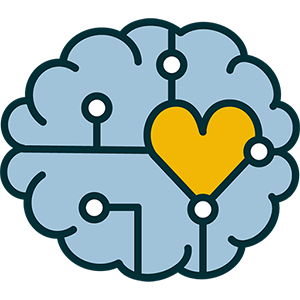-

Co-Regulation is Not Just a Buzzword, and It Can Be Practiced by Everyone
Co-regulation may be the new parenting buzzword, but human beings have utilized co-regulation strategies since time immemorial. Ancestral knowledge teaches us that singing together in ceremony (which stimulates the vagal nerve), drumming (which stimulates both sides of the brain), and spending time in nature (which soothes our nervous systems) are all regulating practices. The strains…
-
Engage Kids in Problem Solving
Family meetings are a powerful tool to build the life skills that we want our children to have. Holding family meetings helps children learn empathy, cooperation, mutual respect, and effective, solution-focused problem solving. The consistent practice of gathering as a family, giving and receiving compliments, and solving problems helps families run more smoothly and builds…
-

The Crisis of Loneliness, and How Schools Help Build Connection and Community
According to a new advisory from the U.S. Surgeon General, a lack of social connection can increase the risk for multiple negative health outcomes. And among individuals in the US, there is a troubling trend of severe loneliness. Even before the COVID-19 pandemic, there were concerning levels of isolation among adults living in this country.…
-
How Family Meetings Can Help Kids Learn to Use Their Voice
Now that the school year is in full swing, we find ourselves settled into the hectic monotony of rushing kids to school, prepping dinner, and getting ready for bed. How do you connect with your kids and give them a voice in the family amidst the daily chaos? Consider trying out family meetings. Family meetings…
-
For Healthier Kids, Flip the Script on Self-Care
One way to help kids who are struggling is to try flipping the script – talk less about self-care and more about care for others around us. Research shows that kindness towards others is more beneficial for mental and physical health than self-care. Active kindness: helping others, volunteering, being generous and consciously kind, results in…
-
How Parents & Caregivers can move on from “What’s Wrong with Me?”
Our early experiences shape us in profound ways. If those experiences were persistently stressful or traumatic in your early life, you may suffer from the results of adversity, just like millions of other parents and caregivers. Dr. Bruce Perry and Oprah Winfrey teamed up on a new book titled What Happened To You? that illuminates…
-
How to Help Kids Rebuild Their Stamina for the New School Year
Masked up, many children have headed back to in-person learning. Though the academic load has not yet become heavy, the time in isolation has taken its toll in many ways. Just like an athlete returning to training after post-injury recuperation, our kids need to slowly build back the stamina they once had. We can help…
-
Harnessing Hope (For Parents)
Hope is the belief in a positive future. It is an optimistic, exciting sense of what is possible. In this time of global health crisis, economic uncertainty, racial reckoning, and physical disconnection from other human beings, the day to day challenges of doing everything differently make it difficult to hold onto hope. Yet hope is…
-
Four Ideas for Stressed Parents
We are parenting more hours a day than ever before. In-person school, in-person play dates and visits with family and friends are things we hope to resume in the near future, but they aren’t providing much relief for parents at the moment. Have you noticed any of these issues coming up for your kids? stressing…
-
Contributions Kids Can Make to Support their Community during Challenging Times
Sound Discipline is now BELONG Partners!
